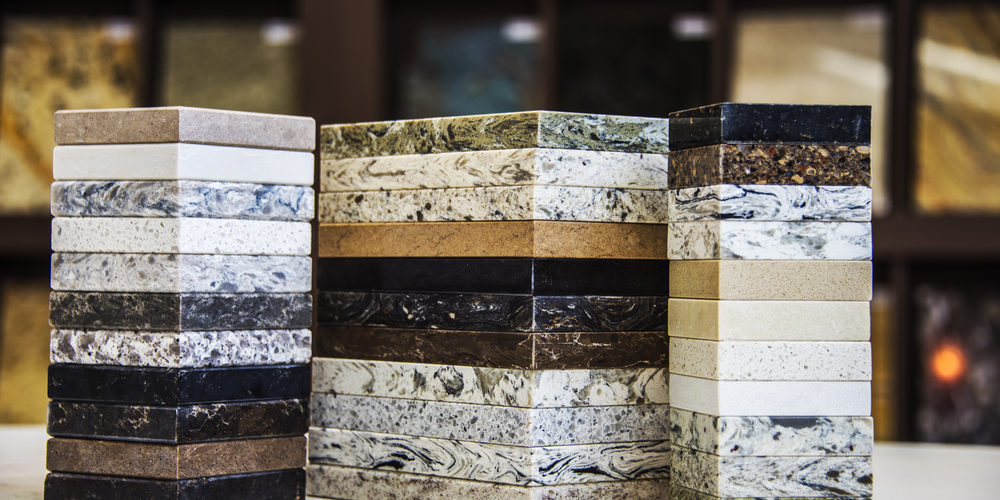If you’re considering including stone in your home, chances are you’ve heard of the granite versus quartz debate. Proponents of each can be terrifically passionate about their choice, but is one really better than the other? In this article we’ll look at the properties of each, and suggest appropriate uses for both.
Granite and quartz: What’s the difference?
Granite is an igneous rock mined in quarries around the world, composed of elements including feldspar, micas, and quartz. These minerals are what cause to the distinctive colours and patterns found in slabs of granite. While quartz is natural, and naturally found in granite, the quartz you buy for countertops is actually human-made. A slab of quartz is around 90% quartz mineral, plus pigments, polymers, and resins.
Visual appeal
Granite is mined from the earth in slabs, so every piece of granite is totally and naturally unique. The stone exists in many different shades, each with its own defining characteristics. When used as a countertop it can add a striking, impressive touch to your room. Granite can also significantly increase the equity in your home and add resale value. Quartz countertops are manufactured by mixing the mineral with polymers to produce sheets. For this reason, the stone can be available in a wide variety of colors, patterns, textures, and combinations which makes them easy to match to your existing décor.
Durability and resistance
Every countertop has a job to do, so you’ll need to consider the relative merits of both materials when it comes to durability and resistance. Granite and quartz are each remarkably durable, but because quartz is slightly more flexible, it’s the stronger of the two. Both materials are perfectly suited for countertops in that they are resistant to heat, scratches, moisture, and stains. Granite should be sealed to protect the surface, but it’s normal for the minerals to loosen, causing pits, fissures, or chips. Granite with more mica or quartzite may be prone to chipping, but in all cases this wear and tear can be repaired.
Sealing and maintenance
Appearing as they do in kitchens and bathrooms, countertops are subject to safety considerations. By its nature, granite is moisture-resistant but, it is also porous. It is recommended to do annual maintenance, such as resealing the countertop. Sealants block liquids from seeping into the granite so a properly sealed countertop will cause liquids to bead on the surface. Quartz is non-porous, making it difficult for bacteria or other pathogens to develop.
Results
Both granite and quartz are excellent countertop materials and either will work in your kitchen or bathroom. That said, one of granite’s core strengths is its timelessness and unique appearance, making it a solid choice for a main socializing room like the kitchen. Quartz, on the other hand, boasts unsurpassed durability, a quality that works well in high traffic areas like children’s bathrooms, changing rooms, and countertops for businesses. Whatever material you choose, you can be assured of a gorgeous and lasting fixture.








